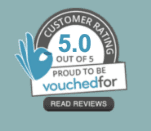Self Employed Mortgages

Many self employed professionals believe that due to their income structure they will be unable to obtain a mortgage. This is not the case!
Granted, mortgage lenders find it easier to offer mortgages to those who are employed on a PAYE basis. They look at the applicant’s pay slips and calculate the maximum borrowing based on their salary, overtime, bonuses, commission, and work allowances.
When it comes to self employed applicants, there are different ways in which the banks will calculate how much you can borrow. It’s important to say here, and is probably why most self employed professionals fear that they will not be able to get a mortgage, banks have different ways in which they assess your income and their criteria for self employed mortgages goes a bit further than just income. They will want to know about your business in terms of its performance, any debts that it has, how long it has been trading, and which sector you operate in.
First of all, we need to consider what type of self employed applicant you are.
Sole Trader vs Limited Company Director
If you operate as a Sole Trader, (this is typically where you operate alone), then the process is fairly simple. The banks will work from the data shown on your Tax Calculation (SA302). This is the document that you or your accountant will produce at the end of each tax year that shows a breakdown of your income. As a minimum you will need to have at least one years trading before being eligible for a mortgage. Most lenders would ideally like you to have been self employed for 2 -3 years before offering you a mortgage, but over the last few years we have seen lenders becoming more flexible and looking to help self employed applicants by considering fewer years of trading history.
If you are a director of a Limited Company, the percentage of the business you own determines how the banks will view your income. As a general rule of thumb, if you own more than 20% of the shares in a business, the banks will class you as self employed. For some, this may seem strange as you may well receive a salary from the business just like an employee would. You may also receive a series of dividends throughout the year depending on how well the company is performing. Due to dividend tax being lower than income tax it is common to see directors receiving a small salary and the rest of their income made up in the form of dividends. From a tax point of view this makes sense. From a mortgage point of view, the banks are ok with this as well.
Again, like the sole traders, as a minimum you will need to have at least one years trading before being eligible for a mortgage. Most lenders would ideally like you to have been self employed for 2 -3 years before offering you a mortgage, but over the last few years we have seen lenders becoming more flexible and looking to help self employed applicants by considering fewer years of trading history.
Unlike sole traders, however, there are a couple of different combinations we can look at when calculating how much you can borrow in terms of a mortgage. Some lenders will look at your salary and dividends, others will look at your salary and the businesses net profit.
It is also important to note that not all banks want to work with self employed applicants, just like not all banks like to work with clients with small deposits, or low credit scores.
How much can I borrow?
When the banks calculate how much you can borrow they will use one of the following options to assess your income:
Your most recent years income figures
- Net profit (Sole traders)
- Salary & Dividends (Company Directors who own more than 20% of the business)
- Salary & Net profit (Company Directors who own more than 20% of the business)
Average your latest 2 years worth of income figures
- Net profit (Sole traders)
- Salary & Dividends (Company Directors who own more than 20% of the business)
- Salary & Net profit (Company Directors who own more than 20% of the business)
Average your latest 3 years worth of income figures
- Net profit (Sole traders)
- Salary & Dividends (Company Directors who own more than 20% of the business)
- Salary & Net profit (Company Directors who own more than 20% of the business)
In real terms these variations can have a huge impact on how much the bank will offer you in terms of a mortgage.
If we look at a simple example to make the point:
You operate as a Sole Trader, your Net Profit figures for the last 3 years are as follows:
Most recent year: £50,000
Previous Year: £40,000
Previous Year: £25,000
To keep it simple, most banks will cap the size of your mortgage at around 4.5 times your income based on the way they calculate the gross figure.
Lender A uses most recent years figures: £225,000 Maximum Borrowing
Lender B uses an average of the 2 most recent years: £202,500 Maximum Borrowing
Lender C uses an average of the 3 most recent years: £172,500 Maximum Borrowing
Based on the above this is potentially many self employed professionals fear that they will not be able to obtain a mortgage. There is a vast variation in how much you can borrow depending on which lender you approach!
The good news is, as a business we have access to a wide range of lenders and are able to guide you through the process when applying for a self employed mortgage. We know which lenders use which method when assessing your income so are able to help get you in front of the one that is most likely to offer you the mortgage you need!
If you are self employed and are considering buying a property in the near future but are unsure where to start, Equity Select would love to help you. We can run through the different scenarios and show you that just because you are self employed doesn’t mean you can’t get a mortgage! We have a mortgage advisor in Burton on Trent, a mortgage advisor in Asby de la Zouch and a mortgage advisor in Lichfield ready to help you with your self-employed mortgage.








